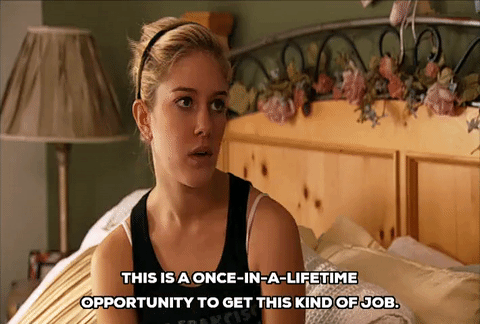A summer project is a time spent gaining valuable skills for your university or graduate career. This could be in many fields – from engineering to linguistics.
Though these can be invaluable, applying for them can be difficult and time-consuming. This list will hopefully provide some insight into the demands of applying for summer projects and how to navigate them.
What costs are associated with summer projects?
The first, and probably the most disheartening, thing you realise when applying is how much it'll cost if you manage to get a project. It’s sad to live in a world where we have to pay to gain experience, but it’s an unfortunate reality.
When applying abroad, flight and accommodation costs can be extortionate. If you're fortunate, your summer project might be covered in full, but don't forget about regular living costs. This is when budgeting becomes extra important because, though the application may be free, your time isn’t.
Applying for my university summer project was free, but the funding process was challenging. I had to write several application letters to different companies and schemes, attach my full CV, academic record and present a project summary. And sadly, despite assistance from my professor, I was rejected, meaning my 9-5 job in the lab is going unpaid.
However, it isn’t all bad news. If you’re lucky enough to get funding or pay, usually it’s a pretty decent amount and easy enough to live off. Lab internships can receive thousands of pounds of funding, and internships for businesses or governments are also usually well-paid. So make sure to keep your eye out for paid summer placements or funding opportunities.

Where can you find opportunities for summer projects?
One fantastic bonus of trying to find a summer project as a student is the assistance you can get from your university. Sometimes, just a simple email inquiry about summer projects can leave you with several opportunities. Contacting your head of department can be beneficial, as they can then send your CV to others who may be offering summer projects.
Applying within your university can be surprisingly informal. Some lecturers will require a CV – but some require just an email and a scheduled meeting. As they already have access to your records, and might even remember you from lectures, you can save some time.
You might be able to gain opportunities with other companies if a facility near your university has close ties. They could help you arrange a summer project or connect you to the right people. With my university connections, it was surprisingly easy to find a summer project right on my doorstep.

What can you get out of a short summer project?
Summer can be a busy time. Some people have holidays planned, some have part-time jobs, and some are just enjoying their downtime. But just a short project, voluntary or paid, can make applications stand out for pretty much any job.
Not only have you demonstrated commitment but you may have also gained valuable skills in your field. It might not feel like much, but the responsibility of taking on even a short project can really enhance your employability.
Even just a few weeks can give you enough experience, training and confidence to further your career. Not only does a summer project enhance your CV, but it also gives you a taste of your future work environment. Whatever experience you gain could help you make the right choice for your career path in the future.

What are the benefits of doing a summer internship?
When applying for a summer project, it is important to remember who you’ll be working with. This can be especially important when working abroad. Making friends with your colleagues can be important to help you feel less alone and give you the opportunity to network.
In a university environment, you’ll probably be working with your lecturer and other people from your department. If you have a big department, this is an opportunity to make friends with coursemates and make connections with the academics.
Even in a business or clinical environment, getting to know your coworkers can do wonders for your career – and make your job less lonely.

Why else should you do a summer project?
After the initial stress of working on CVs, cover letters and transcripts, it is reassuring when you finally have the date in place. This can be arranged around any family holidays you have planned and even coordinated with any part-time jobs you might be doing.
Though it can seem daunting, sometimes it’s nice to have something productive to do with your summertime. Instead of getting bored or working tough hours in a part-time job, you’re spending your summer getting to know your field!
And who knows, you might even enjoy it!
Would you consider doing such a project? Join the Student Hut Community for exclusive academic tips and tricks sent to your inbox and paid surveys.













